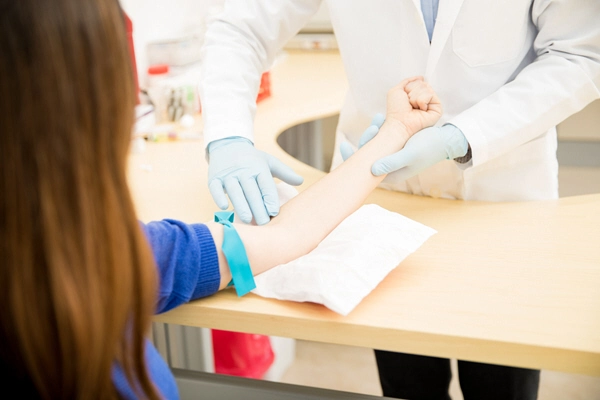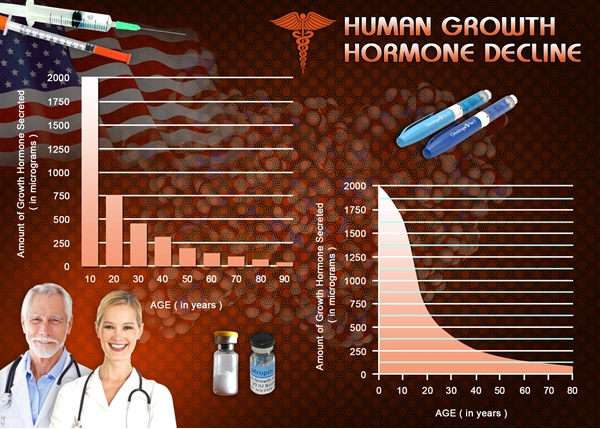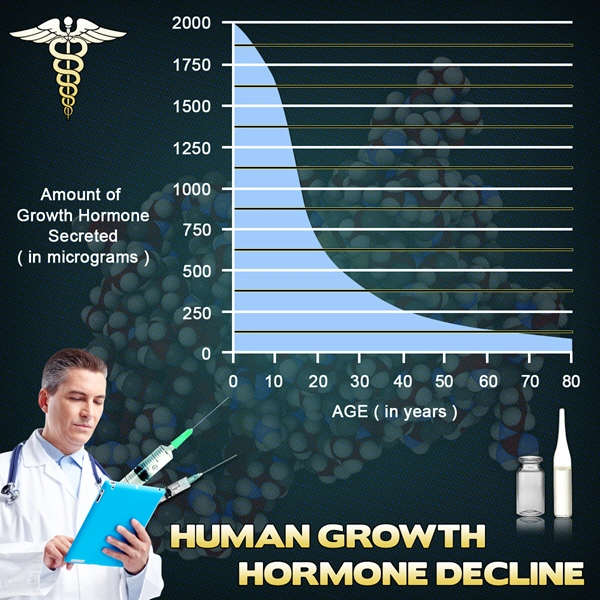Introduction
Impotence, commonly known as erectile dysfunction (ED), is a prevalent issue affecting a significant number of American men. This condition not only impacts physical health but also has profound implications for mental well-being, often intertwining with depression and anxiety. Addressing these interconnected health challenges requires a comprehensive approach that considers both the physiological and psychological aspects of the individual.
Understanding Impotence
Impotence is characterized by the consistent inability to achieve or maintain an erection sufficient for satisfactory sexual performance. It is a common condition, with estimates suggesting that up to 30 million American men are affected. The causes of impotence are multifaceted, ranging from vascular and neurological issues to hormonal imbalances and psychological factors.
The Link Between Impotence and Mental Health
The relationship between impotence and mental health is bidirectional. On one hand, the inability to achieve or maintain an erection can lead to feelings of inadequacy, low self-esteem, and frustration, which may precipitate or exacerbate depression and anxiety. On the other hand, pre-existing mental health conditions such as depression and anxiety can contribute to the development of impotence by affecting neurotransmitter levels and sexual desire.
Depression and Impotence
Depression is a common mental health disorder that can significantly impact sexual function. Men with depression may experience a decrease in libido, difficulty achieving an erection, and reduced sexual satisfaction. The neurotransmitter serotonin, which is often targeted in the treatment of depression, plays a crucial role in sexual function, and its modulation can lead to sexual side effects.
Anxiety and Impotence
Anxiety, particularly performance anxiety, is another significant contributor to impotence. The fear of not being able to perform sexually can create a vicious cycle where anxiety leads to ED, which in turn increases anxiety. This cycle can be particularly challenging to break without targeted interventions.
Addressing Impotence, Depression, and Anxiety
Effective management of impotence, depression, and anxiety requires a holistic approach that addresses both the physical and psychological components of these conditions. Here are some strategies that can be employed:
Medical Interventions
Pharmacological treatments for impotence, such as phosphodiesterase type 5 (PDE5) inhibitors, can be effective in restoring erectile function. However, it is crucial to consider the potential impact of these medications on mental health. For instance, some antidepressants can cause sexual side effects, which may exacerbate impotence.
Psychological Therapies
Cognitive-behavioral therapy (CBT) and other forms of psychotherapy can be highly effective in addressing the psychological aspects of impotence, depression, and anxiety. These therapies can help individuals reframe negative thoughts, reduce performance anxiety, and improve overall mental well-being.
Lifestyle Modifications
Adopting a healthy lifestyle can have a positive impact on both sexual function and mental health. Regular exercise, a balanced diet, adequate sleep, and stress management techniques such as mindfulness and meditation can all contribute to improved physical and psychological health.
Support Systems
Building a strong support system is essential for men dealing with impotence, depression, and anxiety. Open communication with partners, family, and friends can provide emotional support and reduce feelings of isolation. Additionally, joining support groups or seeking counseling can offer valuable insights and coping strategies.
Conclusion
The interplay between impotence, depression, and anxiety is complex and requires a multifaceted approach to treatment. By addressing both the physical and psychological aspects of these conditions, American men can improve their overall quality of life. It is essential for healthcare providers to recognize the interconnected nature of these health challenges and to tailor interventions that consider the individual's unique needs and circumstances. Through a combination of medical interventions, psychological therapies, lifestyle modifications, and robust support systems, men can navigate the path to better sexual and mental health.

- Unveiling the New Frontiers in Treating Male Impotence: A Comprehensive Guide [Last Updated On: February 16th, 2025] [Originally Added On: February 16th, 2025]
- Unveiling the Unspoken: Unmasking the Truth About Erectile Dysfunction [Last Updated On: February 25th, 2025] [Originally Added On: February 25th, 2025]
- Breaking Through the Shackles: A Voyage Through Male Impotence [Last Updated On: February 26th, 2025] [Originally Added On: February 26th, 2025]
- Facing the Invisible Battle: The Untold Challenges Surrounding Erectile Dysfunction [Last Updated On: February 27th, 2025] [Originally Added On: February 27th, 2025]
- Decoding The Enigma: Science Behind Impotence and Its Underlying Causes [Last Updated On: February 28th, 2025] [Originally Added On: February 28th, 2025]
- Reimagining Virility: The Journey Towards Understanding and Overcoming Erectile Dysfunction [Last Updated On: February 28th, 2025] [Originally Added On: February 28th, 2025]
- Navigating the Emotional Spectrum: Understanding the Issues of Impotence [Last Updated On: March 2nd, 2025] [Originally Added On: March 2nd, 2025]
- Innovative Treatments Revolutionizing Impotence Management in American Men [Last Updated On: March 2nd, 2025] [Originally Added On: March 2nd, 2025]
- Understanding and Overcoming Erectile Dysfunction: Strategies to Combat Stigma and Improve Quality of Life [Last Updated On: March 3rd, 2025] [Originally Added On: March 3rd, 2025]
- Exploring the Connection Between Erectile Dysfunction and Heart Health [Last Updated On: March 4th, 2025] [Originally Added On: March 4th, 2025]
- Understanding Testosterone's Role in Male Impotence and Effective Management Strategies [Last Updated On: March 5th, 2025] [Originally Added On: March 5th, 2025]
- Exploring the Link Between Stress and Erectile Dysfunction in American Men [Last Updated On: March 6th, 2025] [Originally Added On: March 6th, 2025]
- Navigating Impotence in Relationships: Essential Communication Strategies for Couples [Last Updated On: March 7th, 2025] [Originally Added On: March 7th, 2025]
- Confronting Impotence: Causes, Treatments, and Success Stories in American Men [Last Updated On: March 8th, 2025] [Originally Added On: March 8th, 2025]
- The Psychological Impact of Impotence on Relationships: Navigating Communication and Intimacy Challenges [Last Updated On: March 9th, 2025] [Originally Added On: March 9th, 2025]
- Unveiling the Spectrum of Alternative Therapies for Managing Impotence in American Males [Last Updated On: March 12th, 2025] [Originally Added On: March 12th, 2025]
- Mastering the Challenge: A Comprehensive Guide to Understanding and Treating Impotence in American Men [Last Updated On: March 14th, 2025] [Originally Added On: March 12th, 2025]
- Revolutionizing Male Health: A Comprehensive Guide to Overcoming Impotence Through Lifestyle Changes [Last Updated On: March 13th, 2025] [Originally Added On: March 13th, 2025]
- Exploring the Therapeutic Pathway: Counseling as a Cornerstone for Overcoming Impotence in American Men [Last Updated On: March 15th, 2025] [Originally Added On: March 15th, 2025]
- Impotence Unveiled: Men's Personal Triumphs Over Erectile Dysfunction [Last Updated On: March 18th, 2025] [Originally Added On: March 18th, 2025]
- Understanding Impotence: Causes, Diagnosis, Treatments, and Prevention Strategies [Last Updated On: March 18th, 2025] [Originally Added On: March 18th, 2025]
- Impotence in American Males: Diagnosis, Treatment, and Emotional Navigation [Last Updated On: March 19th, 2025] [Originally Added On: March 19th, 2025]
- Impotence in Aging American Males: Causes, Impacts, and Management Strategies [Last Updated On: March 19th, 2025] [Originally Added On: March 19th, 2025]
- Medication-Induced Impotence: Causes, Management, and Empowerment Strategies for American Males [Last Updated On: March 19th, 2025] [Originally Added On: March 19th, 2025]
- Restorative Sleep: A Key to Enhancing Sexual Health and Combating Impotence in Men [Last Updated On: March 19th, 2025] [Originally Added On: March 19th, 2025]
- Impotence in American Men: Economic, Emotional, and Relational Impacts Explored [Last Updated On: March 19th, 2025] [Originally Added On: March 19th, 2025]
- Overcoming Impotence Stigma: Encouraging Dialogue and Proactive Health Management [Last Updated On: March 20th, 2025] [Originally Added On: March 20th, 2025]
- Rebuilding Romance After Impotence: Redefining Intimacy and Strengthening Bonds [Last Updated On: March 20th, 2025] [Originally Added On: March 20th, 2025]
- Telemedicine Revolutionizes Impotence Care: Benefits, Challenges, and Future Prospects [Last Updated On: March 20th, 2025] [Originally Added On: March 20th, 2025]
- Diabetes and ED in American Men: Understanding Links, Risks, and Treatments [Last Updated On: March 21st, 2025] [Originally Added On: March 21st, 2025]
- Innovative Gadgets and Techniques Revolutionize Impotence Treatment in American Men [Last Updated On: March 21st, 2025] [Originally Added On: March 21st, 2025]
- Positivity and Mental Resilience: Key to Overcoming Impotence in American Men [Last Updated On: March 22nd, 2025] [Originally Added On: March 22nd, 2025]
- Obesity, Diet, and Impotence: A Comprehensive Guide for American Men's Sexual Health [Last Updated On: March 22nd, 2025] [Originally Added On: March 22nd, 2025]
- Overcoming Impotence: Strategies for American Men to Rekindle Passion and Intimacy [Last Updated On: March 23rd, 2025] [Originally Added On: March 23rd, 2025]
- Overcoming Impotence: Enhancing Seduction and Intimacy Through Holistic Strategies [Last Updated On: March 23rd, 2025] [Originally Added On: March 23rd, 2025]
- Impotence in American Males: Causes, Emerging Treatments, and Holistic Approaches [Last Updated On: March 23rd, 2025] [Originally Added On: March 23rd, 2025]
- Erectile Dysfunction: Breaking Silence, Understanding Causes, and Exploring Treatments [Last Updated On: March 23rd, 2025] [Originally Added On: March 23rd, 2025]
- Psychological Approaches to Managing Impotence: CBT, Mindfulness, and Support [Last Updated On: March 23rd, 2025] [Originally Added On: March 23rd, 2025]
- Physical Therapy Enhances Sexual Performance, Addresses Impotence in American Males [Last Updated On: March 24th, 2025] [Originally Added On: March 24th, 2025]
- Cultural Perceptions of Impotence in America: Impact on Men's Health-Seeking Behaviors [Last Updated On: March 24th, 2025] [Originally Added On: March 24th, 2025]
- Counseling Strategies for Enhancing Self-Esteem in Men with Impotence [Last Updated On: March 24th, 2025] [Originally Added On: March 24th, 2025]
- PDE5 Inhibitors: Enhancing Erectile Function and Quality of Life in American Males [Last Updated On: March 24th, 2025] [Originally Added On: March 24th, 2025]
- Redefining Sexual Success: Beyond Impotence for American Men's Holistic Wellness [Last Updated On: March 24th, 2025] [Originally Added On: March 24th, 2025]
- Exploring Impotence Treatments: From Injections to Implants and Emerging Therapies [Last Updated On: March 25th, 2025] [Originally Added On: March 25th, 2025]
- Understanding Insurance Coverage for Erectile Dysfunction Treatments: A Comprehensive Guide [Last Updated On: March 25th, 2025] [Originally Added On: March 25th, 2025]
- Anatomy of Impotence: Vascular, Neurological, and Hormonal Insights for American Men [Last Updated On: March 25th, 2025] [Originally Added On: March 25th, 2025]
- Navigating Impotence: Partners' Role in Recovery and Relationship Strengthening [Last Updated On: March 26th, 2025] [Originally Added On: March 26th, 2025]
- Impotence in American Males: Causes, Treatments, and Holistic Recovery Approaches [Last Updated On: March 26th, 2025] [Originally Added On: March 26th, 2025]
- Exploring Aphrodisiacs: Natural Remedies for Impotence in American Males [Last Updated On: March 26th, 2025] [Originally Added On: March 26th, 2025]
- Biochemical Insights into Impotence: NO, cGMP, Hormones, and Future Treatments [Last Updated On: March 26th, 2025] [Originally Added On: March 26th, 2025]
- Essential Vitamins and Minerals to Combat Impotence in American Men [Last Updated On: March 26th, 2025] [Originally Added On: March 26th, 2025]
- Work-Related Impotence: Understanding Stress Links and Management Strategies [Last Updated On: March 26th, 2025] [Originally Added On: March 26th, 2025]
- Hormonal Imbalances and Impotence: Insights for American Men's Sexual Health [Last Updated On: March 26th, 2025] [Originally Added On: March 26th, 2025]
- Lifestyle Choices Impacting Male Sexual Health: Diet, Exercise, and More [Last Updated On: March 26th, 2025] [Originally Added On: March 26th, 2025]
- Chronic Stress and Impotence: Understanding and Managing the Connection in American Men [Last Updated On: March 26th, 2025] [Originally Added On: March 26th, 2025]
- Exercise as a Natural Remedy for Impotence: Enhancing Sexual Health [Last Updated On: March 26th, 2025] [Originally Added On: March 26th, 2025]
- Erectile Dysfunction: From Historical Remedies to Modern and Future Treatments [Last Updated On: March 26th, 2025] [Originally Added On: March 26th, 2025]
- Impotence: Unveiling Emotional and Financial Burdens on American Men [Last Updated On: March 27th, 2025] [Originally Added On: March 27th, 2025]
- Exploring Secondary Causes of Impotence When Medications Fail: A Comprehensive Guide [Last Updated On: March 27th, 2025] [Originally Added On: March 27th, 2025]
- Erectile Dysfunction: Navigating Emotional Challenges and Coping Strategies for Men [Last Updated On: March 27th, 2025] [Originally Added On: March 27th, 2025]
- Impotence in American Men: Navigating Identity, Intimacy, and Psychological Impact [Last Updated On: March 27th, 2025] [Originally Added On: March 27th, 2025]
- Impotence in America: Masculinity, Stigma, and the Path to Healing [Last Updated On: March 27th, 2025] [Originally Added On: March 27th, 2025]
- Debunking Myths: Understanding and Treating Impotence in American Men [Last Updated On: March 28th, 2025] [Originally Added On: March 28th, 2025]
- Overcoming Impotence: A Collaborative Approach to Sexual Wellness for American Men [Last Updated On: March 28th, 2025] [Originally Added On: March 28th, 2025]
- Smoking and Alcohol: Key Factors in Impotence Among American Men [Last Updated On: March 28th, 2025] [Originally Added On: March 28th, 2025]
- Acupuncture as a Complementary Treatment for Impotence in American Males [Last Updated On: March 29th, 2025] [Originally Added On: March 29th, 2025]
- American Men's Journey to Overcome Impotence: Resilience and Recovery [Last Updated On: March 30th, 2025] [Originally Added On: March 30th, 2025]
- Mindfulness and Meditation: A Holistic Approach to Treating Impotence in American Men [Last Updated On: March 30th, 2025] [Originally Added On: March 30th, 2025]
- Surgical Options for Impotence: Procedures, Recovery, and Risks [Last Updated On: March 30th, 2025] [Originally Added On: March 30th, 2025]
- Innovative Technologies Transforming Erectile Dysfunction Treatment and Management [Last Updated On: March 31st, 2025] [Originally Added On: March 31st, 2025]
- Impotence in American Men: Psychological Impacts and Relationship Dynamics Explored [Last Updated On: April 1st, 2025] [Originally Added On: April 1st, 2025]
- Impotence and Prostate Health: Causes, Connections, and Management Strategies [Last Updated On: April 5th, 2025] [Originally Added On: April 5th, 2025]
- Future of Impotence Treatment: Innovations and Hope for American Men [Last Updated On: April 5th, 2025] [Originally Added On: April 5th, 2025]
- Breaking the Silence on Impotence: Fostering Open Dialogue for Men's Health [Last Updated On: April 8th, 2025] [Originally Added On: April 8th, 2025]
- Lifestyle Hacks to Manage and Overcome Impotence in American Males [Last Updated On: April 8th, 2025] [Originally Added On: April 8th, 2025]
- Genetic Factors in Male Impotence: Insights and Management Strategies [Last Updated On: April 8th, 2025] [Originally Added On: April 8th, 2025]
- Key Nutrients and Foods to Combat Impotence and Boost Sexual Health [Last Updated On: April 9th, 2025] [Originally Added On: April 9th, 2025]
- Impotence and Chronic Illness: Understanding Links and Managing Challenges [Last Updated On: April 9th, 2025] [Originally Added On: April 9th, 2025]
- Environmental Toxins Linked to Male Impotence: Urgent Need for Awareness and Prevention [Last Updated On: April 9th, 2025] [Originally Added On: April 9th, 2025]
- Innovative Drug Therapies and Gene Therapy Transform Impotence Treatment Landscape [Last Updated On: April 10th, 2025] [Originally Added On: April 10th, 2025]



List of USA state clinics - click a flag below for blood testing clinics.
Word Count: 596



















































